The Galactic Senate, also referred to as the Galactic Congress, the Congress of the Republic, or the Republic Senate, was the legislative assembly of the Galactic Republic. It was composed of senators from various worlds and star systems across the galaxy, and was presided by a Supreme Chancellor, the highest office-holder of the democratic union that was elected by and from the representatives. Its primary concern was mediating disputes between varying worlds and dictating the laws and regulations necessary to maintain the Republic. In addition, the Jedi Order vowed an allegiance of service to the Galactic Senate.
Upon the fall of the Jedi and the rise of the Galactic Empire, the Galactic Senate was transformed into the Imperial Senate. However, this was merely ceremonial and powerless, with it discouraged from disagreeing with the policies of Emperor Sheev Palpatine. Immediately before the Battle of Yavin, Palpatine officially dissolved the Imperial Senate.
After their victory at the Battle of Endor, the Rebel Alliance was reorganized into the New Republic, which reconvened the Galactic Senate after twenty-two-years. As the capital of the Republic rotated among its member worlds, so did the restored Senate.

The Galactic Republic was governed by the Senate on Coruscant.
During the early years of the Galactic Republic, the Senate would come to serve as the democratic means of solving disputes within the new government as detailed in the Galactic Constitution, and would sit in the Senate Rotunda on Coruscant, located in the Senate District on the capital world of the Republic. The Senate and the Supreme Chancellor were protected by the blue-robed Senate Guards who stood watch and blended in well with the formal surroundings. They served as a symbol of order in the early Republic owing to its absence of a formal standing army. The guards could also be found at the entrances to many of the delegate platforms and at the entrances to the Senate Rotunda itself.
In 1000 BBY, the Senate passed a rule that forbade any droid to translate or speak any writings in the Sith language. During the Chancellery of Orlen Mollo and Kyong Greylark of the High Republic Era, Greylark stayed on Coruscant with the Senate. Mollo, meanwhile, traveled the Galactic Frontier in the Outer Rim Territories to help with the Republic's expansion and directly confront crises. Later in the era, Senator Izzet Noor of the planet Serenno represented the interests of the majority of the Outer Rim in the Senate. At the same time, Lina Soh served as the Supreme Chancellor of the Republic and launched the outreach program to connect the Rim with the Republic.
Finis Valorum served as Supreme Chancellor a decade before the time of the Clone Wars. He was a member of House Valorum and a descendant of Tarsus Valorum, who was the first chancellor of the modern Galactic Republic. As chancellor, Finis Valorum presided over the Galactic Senate, which, by the late Republic Era, stagnated due to widespread corruption. Valorum was virtually powerless in spite of his role as chancellor according to the Naboo senator Sheev Palpatine, who also claimed that the Republic was controlled by bureaucrats on the payroll of major conglomerates like the Trade Federation. The Jedi Order's seemingly blind loyalty to the Senate despite its corruption greatly angered Count Dooku, a former Jedi Master who remained on good enough terms with the Order to visit the Temple.
Valorum had a personal distaste for senators who represented corporations instead of planets, but he knew that opinion was old fashion, forcing him to keep it private. During his chancellorship, the Federation tried, multiple times, to push through a tax reform bill, which encountered resistance from Mid Rim worlds. Valorum was privately angered by the ongoing debate, seeing as the bill was put forward multiple times, resulting in battles of words between those who supported and those who voted down the bill. The discussions reached a point where, after a failed conference over the bill, he confided in Palpatine that they would need an independent party like the Jedi Order to step in to moderate.
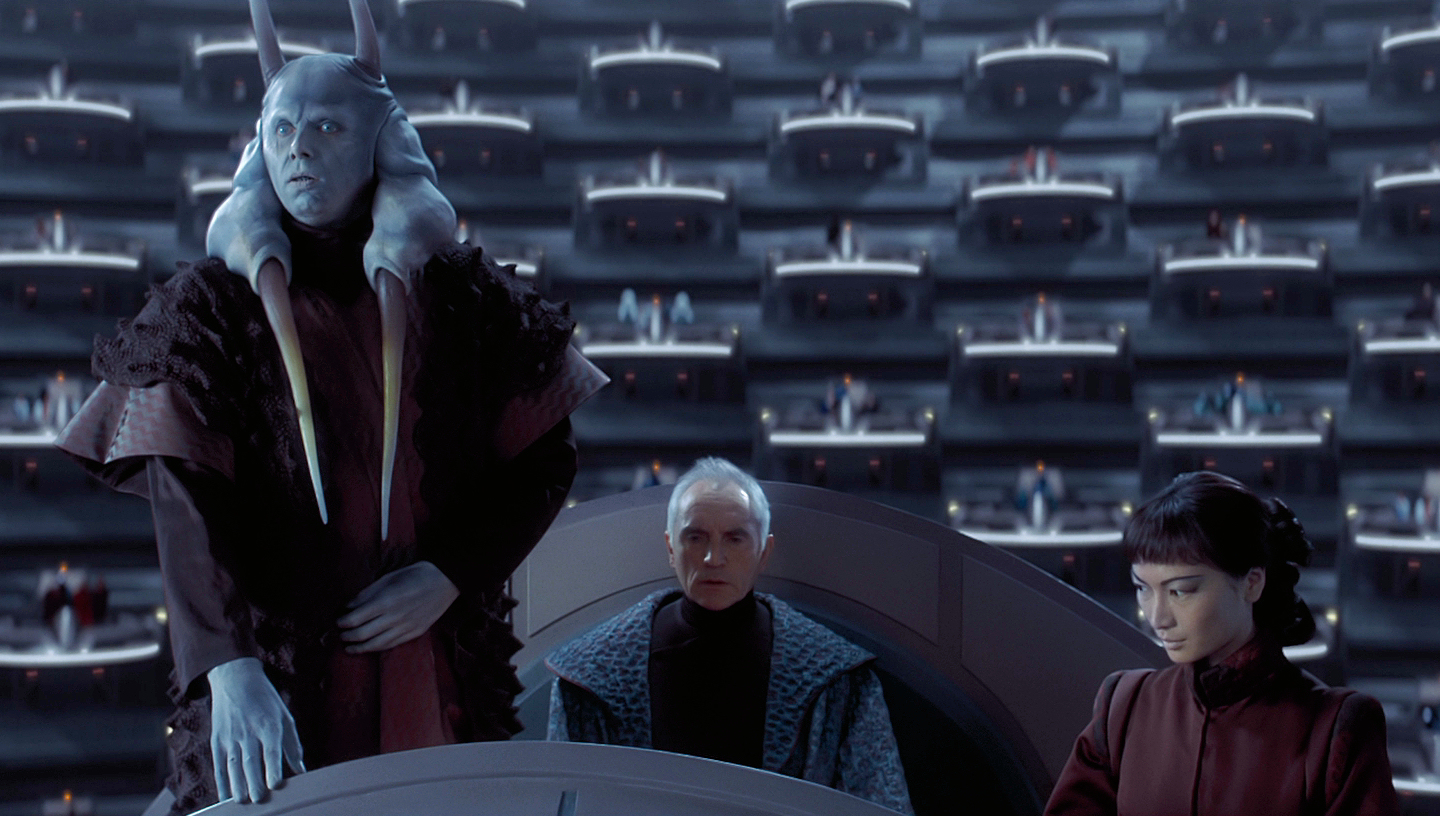
During the Invasion of Naboo, Supreme Chancellor Finis Valorum was voted out of office by the Galactic Senate.
In protest of Prop 31-814D and to try to support its proposed bill, the Federation invaded Naboo. During the occupation, Queen Padmé Amidala fled to the galactic capital, believing Chancellor Valorum and the Senate would intervene in the dispute between the Trade Federation and Royal House of Naboo. Due to the Senate's bureaucratic procedure, however, Valorum was made to defer the matter at the behest of delegates from the Trade Federation and the Congress of Malastare, both of whom requested a commission to investigate the Naboo sovereign's claims. Amidala was adamant on taking immediate action to liberate the people of Naboo; acting on the counsel of her advisor, Senator Palpatine, Amidala called on the Senate to remove Valorum from power through a Vote of No Confidence, rendering the office vacant.
The Senate reconvened to elect the new Supreme Chancellor, the nominees being Bail Antilles of Alderaan, Ainlee Teem of Malastare, and Sheev Palpatine of Naboo. Despite Palpatine's assurance that the Senate would likely cast a sympathy vote in Naboo's favor, Amidala was unwilling to wait for the election's results and set out to liberate Naboo without the Republic's help. During her stay on Coruscant, Amidala had grown to believe that the Republic government no longer functioned efficiently; she hoped the Senate would become more compassionate under Palpatine's leadership.
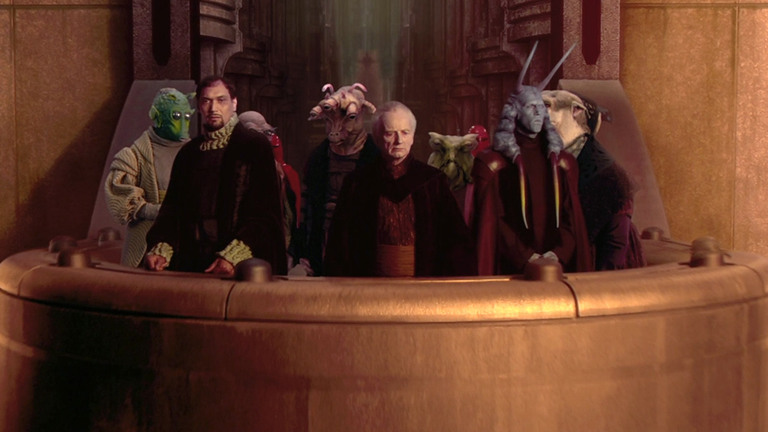
The Clone Wars caused the Galactic Senate to surrender much of its power to Supreme Chancellor Sheev Palpatine.
Following the Battle of Naboo, Sheev Palpatine returned to his homeworld as the new Supreme Chancellor of the Galactic Republic. The queen and the new chancellor congratulated each other on their respective victories. Palpatine promised Amidala that he would dedicate his chancellorship to fighting corruption in the Senate. In 24 BBY, Dooku publically denounced the Republic's corruption and favoritism for the Core Worlds. In the speech, he formed the Confederacy of Independent Systems, beginning the Separatist Crisis. Thousands of star systems joined the Separatist state over the next two years.
The Separatist Crisis escalated into open war against the Confederacy when the Separatist Droid Army was discovered on the planet Geonosis; the Senate approved of Junior Representative Jar Jar Binks' motion to grant emergency powers to Chancellor Palpatine under the Emergency Powers Act. The discovery of the Droid Army had scared the Senate and made it seem like it had no choice but to respond with an attack. The chancellor publicly vowed to relinquish his wartime authority once the crisis was resolved, but Count Dooku warned the Jedi Knight Obi-Wan Kenobi that the Senate had fallen under the influence of a Dark Lord of the Sith. Grand Master Yoda disregarded Dooku's warning as an attempt to confuse the Jedi.
As the war progressed, Palpatine's emergency powers eroded the Republic Senate's authority, while amendments to the Galactic Constitution prompted questions even from the chancellor's own Loyalist Committee. While most senators defended his expanding powers as necessary in the face of Dooku's control over the CIS, many of his critics formed the Delegation of 2,000. During the last full session of the Senate, the group presented the Petition of 2,000.
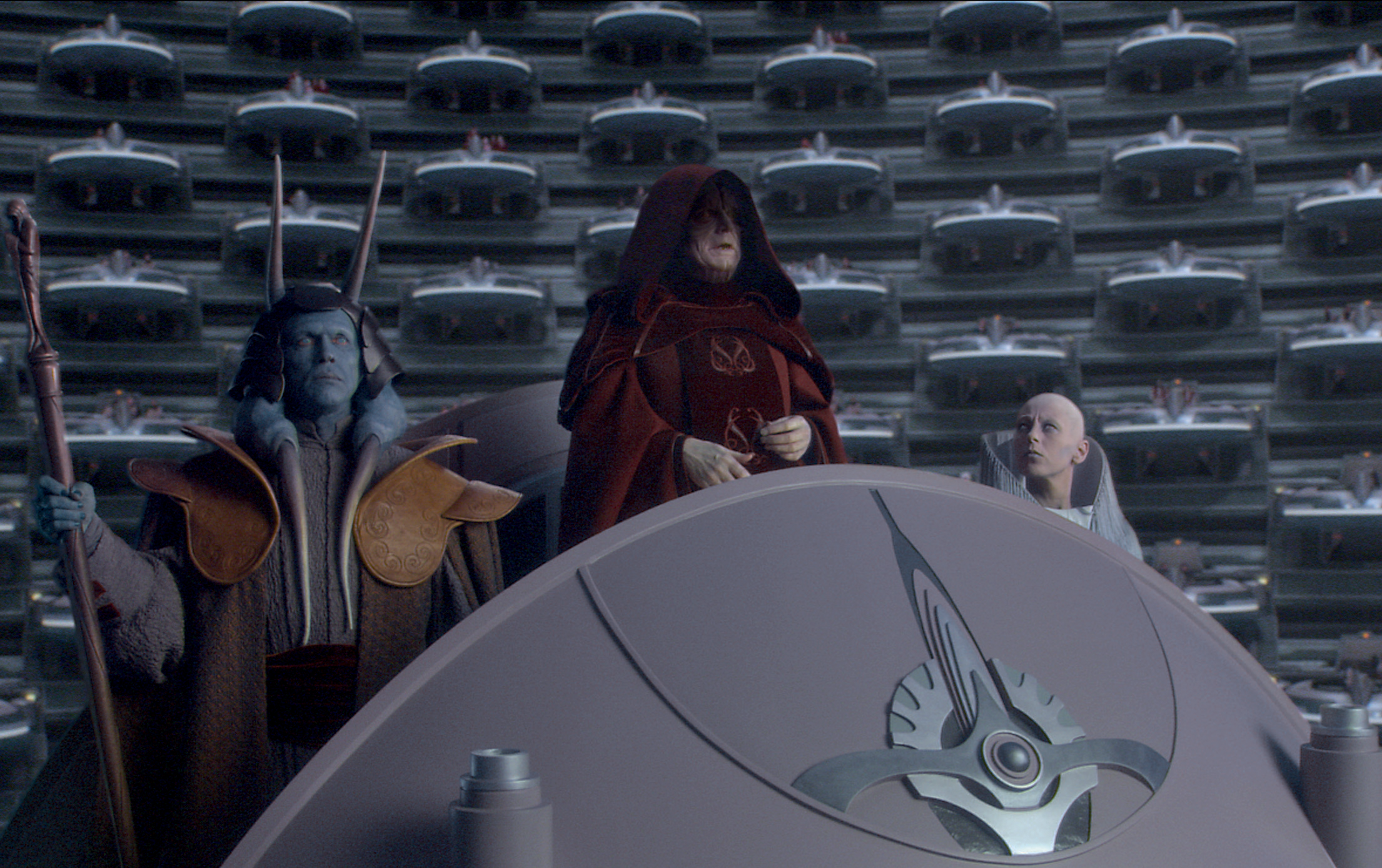
The proclamation of the New Order, a Galactic Empire, was issued to the thunderous applause of the Senate.
In the waning days of the Clone Wars, Jedi Master Mace Windu confronted Chancellor Palpatine along with other members of the Jedi High Council; having discovered Palpatine's true identity as Darth Sidious, Dark Lord of the Sith, Windu declared his intention to arrest the Supreme Chancellor in the Galactic Senate's name. Though Windu decided to allow the Senate to determine Sidious' fate, he reconsidered his decision after the Sith Lord fought back, killing the other Jedi before being disarmed by Windu. He also concluded that neither the Senate nor the Republic courts would side with the Jedi against the chancellor, who effectively controlled the government at this point in the war.
After Windu's death and the execution of Order 66, the Senate convened an emergency session by order of the Supreme Chancellor. With his self-inflicted facial scarring, the result of his own Force lightning attack, Sidious portrayed himself as the victim of an assassination attempt by the Jedi Order, whose members were declared instigators of rebellion and enemies of the state subject to summary execution. With the CIS neutralized and the Great Jedi Purge under way, Sidious proclaimed the birth of a New Order, the First Galactic Empire, ruled by himself as Galactic Emperor. The new Imperial Senate broke out into applause, cheering the end of the Galactic Republic to the dismay of Senator Bail Organa of Alderaan and Senator Padmé Amidala of Naboo. A day later, clone troopers arrested sixty-three senators, some of whom were part of the Delegation of 2,000, on charges of treason.
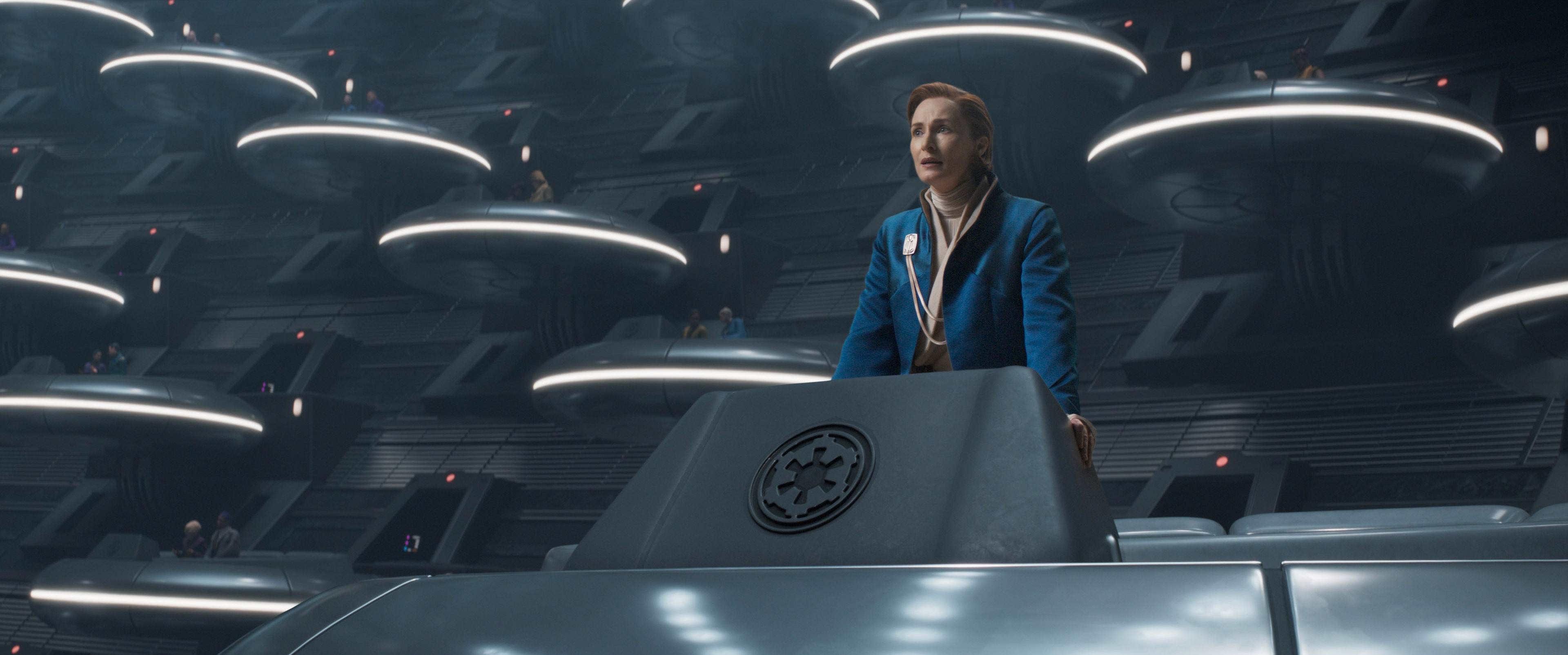
The Imperial Senate carried on in place of the Galactic Senate, where its influence waned as the Emperor consolidated his rule over the galaxy until its dissolution by his order.
The Galactic Senate was preserved, becoming known as the Imperial Senate, but its existence was largely ceremonial. Stripped of much of its power, the Senate only grew weaker under the Empire, which enforced its power largely through a system of Regional Governors. When the DS-1 Death Star Mobile Battle Station was deemed fully operational, the Emperor announced the dissolution of the Imperial Senate, bringing an end to the final remnant of the Old Republic. The Death Star's destruction at the Battle of Yavin frustrated Sidious' plans; he had tolerated the Senate's continued existence as a necessity for maintaining order, and only disbanded the legislature due to his confidence in a planet-killer. With neither a Senate nor a Death Star, he found his Empire skirting the edges of chaos and disaster.
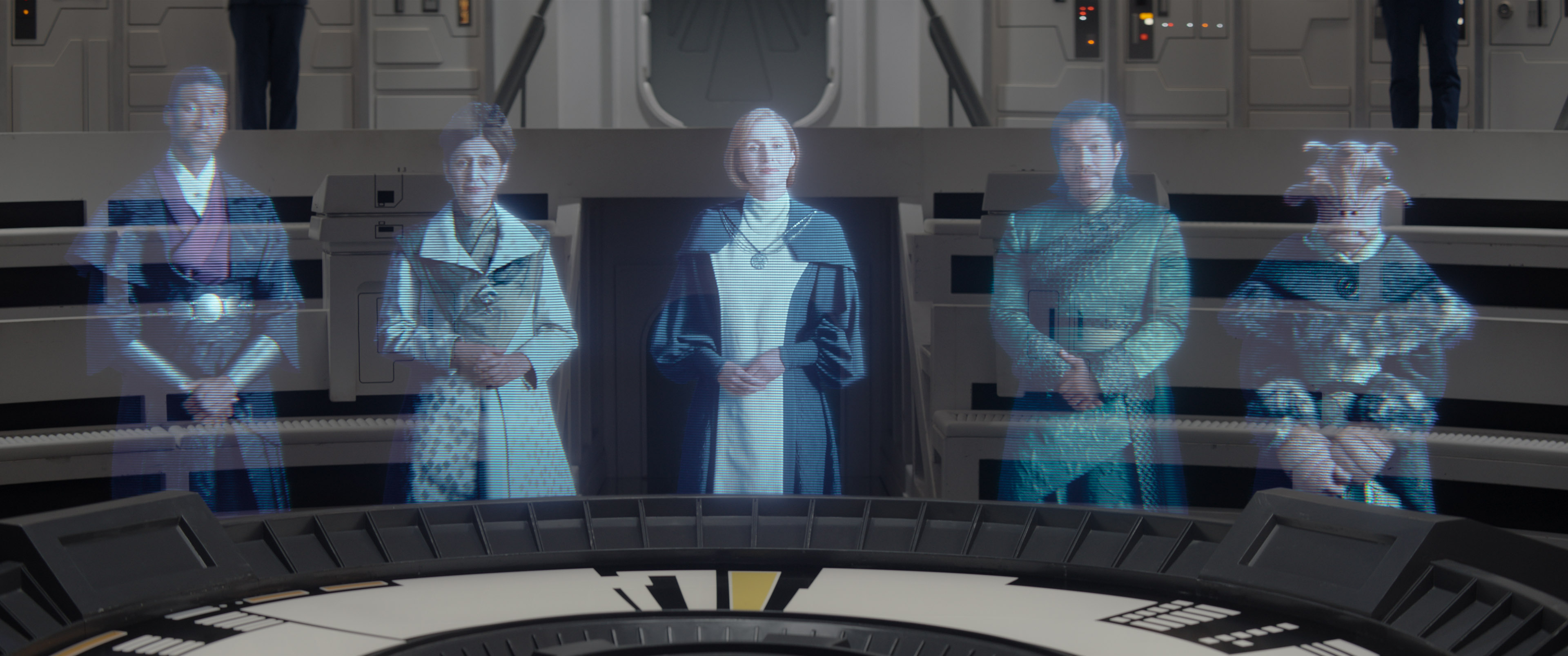
Senators of the Galactic Senate after it was restored.
Shortly after the Battle of Endor, the Alliance to Restore the Republic reorganized into the New Republic and reconvened the Galactic Senate on the re-established galactic capital planet of Chandrila after a twenty-two-year absence.

The Galactic Republic was governed by the Senate on Coruscant.
The Galactic Senate was led by a democratically elected Supreme Chancellor that held the ability to call for a special session of Congress, but could just as easily be removed as voted into office through a Vote of No Confidence from the various senators that served under them. Supporting the High Chancellor was the Vice Chair, who would help set the agenda for the senate and call for votes on varying pieces of legislation. Hundreds of senators would represent varying worlds, sectors or trade groups from across the galaxy, while Junior Representatives could voice the opinions of a minority population or political party of an already represented planet. Despite this position, the Representative could not actively vote on or introduce new legislation, but could perform these duties if the instated senator was on a leave of absence or otherwise unavailable. Members of varying corporations, guilds, federations, and businesses received representation in the Senate, with members of the Trade Federation and others exploiting this position for monetary gain, and causing dissatisfied systems to view the Senate as corrupt.
The Galactic Senate Chamber located in the Senate Building would serve as the meeting hall for the Galactic Senate, and would be lined with one thousand and twenty-four repulsorpods which could detach from their positions along the wall and float into the center of the chamber. Despite being the stage for which galactic debate would ensue, most work was done behind the scenes in formal and informal subcommittees in the Senate Office Building, which contained the offices of varying senators and the Chancellor's office at the top. Under the Supreme Chancellor existed the Office of the Chancellor which would consist of his immediate staff.
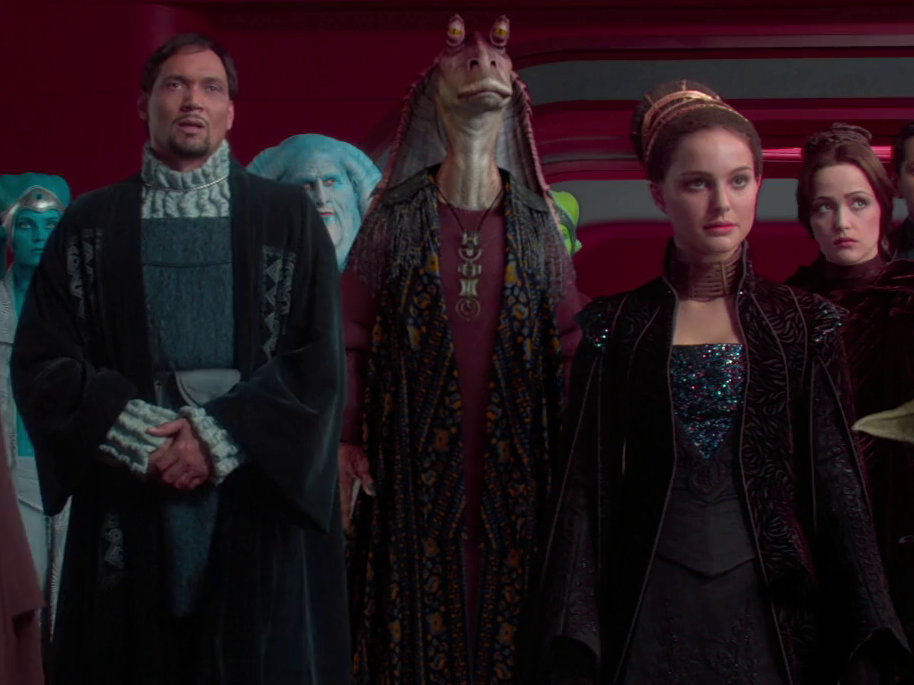
The Galactic Senate was a diverse body of legislators representing the various factions in the Republic.
There were multiple factions of like-minded senators who often voted together. Prior to the Separatist Crisis, the two major factions in the Senate were the Core Faction and the Rim Faction. The Core Faction advocated for more centralized government power and higher taxes, with the aim of making the rest of the galaxy more similar to the Core. The Rim Faction advocated for systems' rights and lower taxes, arguing that the Rim knew its own needs better than the Core did. The Militarists were a smaller group who usually voted with the Core but were primarily concerned with restoring a formal Republic Military, which they wanted to use to curb organized crime and Hutt expansion.
Most of the Rim Faction left the Republic at the beginning of the Separatist Crisis, leading to factional reorganization. The Loyalist Faction supported the Republic, the Chancellor and the formation of a military. While there were some idealists, it was largely composed of Militarists and Rim worlds that had not seceded. The Pacifist faction opposed the Military Creation Act and wanted to allow worlds to secede peacefully in the hope that they would realize the error of their ways by themselves. It was composed of Core worlds who opposed increased taxes and worlds that were ideologically opposed to militarization.
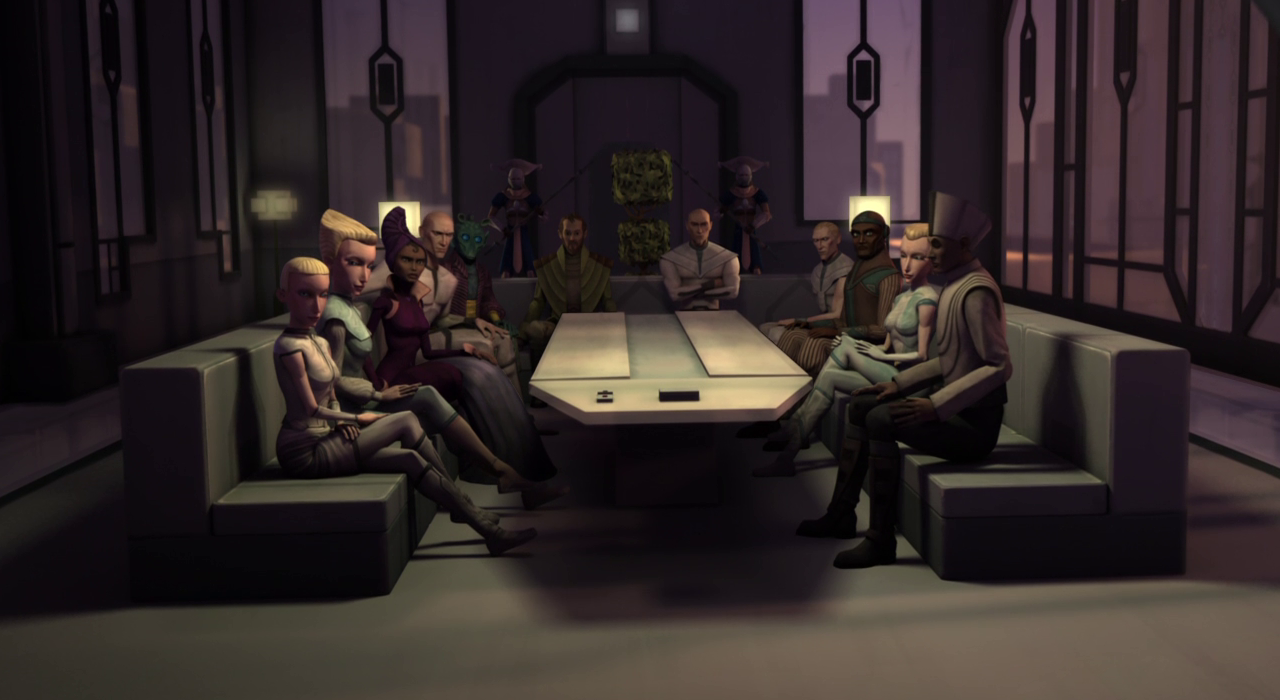
During the Clone Wars, some within the Senate advocated pacifism and neutrality.
The Council of Neutral Systems was an offshoot of the Pacifist Faction that abstained from most war-related votes, largely concerned with opposing attempts to punish neutral systems that traded with Separatists. Most members need free trade with both sides to sustain their economies, although some members just wanted to maximize their profits. The Council of Neutral Systems also served the important function of letting non-Republic delegates use their Senate pods and floor time to address the Senate. The Secessionist Faction was an extreme wing of the Pacifist Faction composed of systems that were considering secession. Some vital systems used their importance to the Republic as leverage, so while the Secessionist voting bloc was quite small, it could have an outsized influence. Most members advocated diplomatic solutions to the crisis and wanted a peace treaty with the Confederacy of Independent Systems.
The Senate was divided into numerous committees and subcommittees, each to handle various issues of Galactic government and lawmaking. Some of them were:
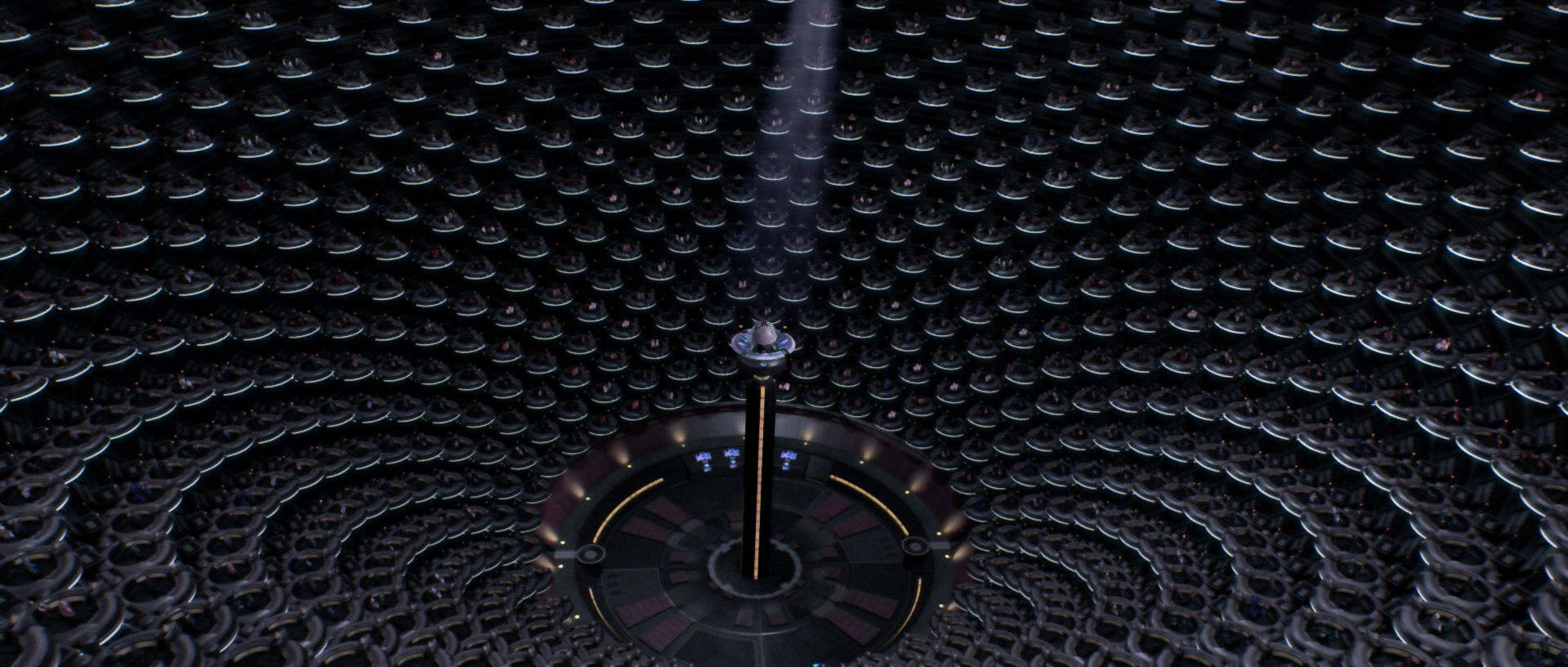
Sessions were held in the Senate Chamber of the Galactic Senate Building.
The Galactic Senate would serve as the primary legislative body of the Galactic Republic. It was responsible for creating laws, mediating disputes, making treaties, and regulating commerce.
It possessed the authority to levy taxes, declare war, declare Free Trade Zones and manage almost every action necessary to preserve the stability of the Republic. Despite its vast authority, it did not prosecute offenders, leaving the judicial system in the hands of the Supreme Court and peacekeeping efforts largely in the hands of the Judicial Department. The Senate could not order the Jedi Order into action, but could often pressure it into carrying out its directives.
Senate sessions were led by the Vice Chair or the Chancellor himself; either represented the Chair, who gave clearance to delegations to address the assembly by "recognizing" them. The Chair would also call the Senators to order when and if they became unruly. Other than the Chancellor and the Vice Chair, the Chair was also represented by the Senior Administrative Aide who advised the Chancellor on senatorial matters. They were further assisted by a Parliamentarian who advised on proper procedure, the Official Reporter who recorded the verbatim proceedings, the Sergeant-at-Arms who supervised the courier droids as well as Senate pages, and the Journal Clerk.
Once a delegation was recognized, they were permitted to detach their repulsorpod from its docking station and approach the Chancellor's podium in the center of the room to make their case. Other delegations could respond to the speaker's case by approaching the podium themselves, but these could be rejected at any time as they were not recognized by the Chair.
The following are documents passed by the Galactic Senate or relating to its functioning:

The Senate capitol and offices were located in the Senate District of Galactic City.
The exterior of the Senate building consisted of a large courtyard known as the Senate Plaza which displayed several statues of the Republic's ancient founders. The interior held the Galactic Senate Chamber which could hold one thousand and twenty-four repulsorpods that detached from the chamber wall, and were equipped with voice-amplifying microphones, translators, and hovercams that recorded the various proceedings. At the center of the chamber was a podium where the Supreme Chancellor and the Vice Chair would preside over meetings of the Senate.
The Galactic Senate was first mentioned in the now Legends novelization of A New Hope, ghostwritten by Alan Dean Foster and published in 1976.
In background material composed by George Lucas in 1977 for licensees of the Expanded Universe, the "Republican Senate" represented a total of 24,372 systems and elected a Chancellor to a four year term. There was a term limit of one term. During a crisis, a Chancellor extended his term to 12 years and finally declared himself Emperor, first by rhetorically attacking the bureaucracy and then by aligning himself with it. The Jedi sided with the Senate after it attempted to impeach him. This story appears to be the germ of much of the events of the Prequel trilogy.
- William Shakespeare's The Phantom of Menace: Star Wars Part the First
- LEGO Star Wars: The Freemaker Adventures — "Escape from Coruscant"
- LEGO Star Wars: The Skywalker Saga